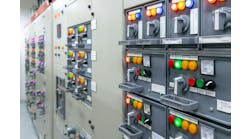During 2010 it was reported that several European oil and chemical firms have been looking to sell domestic refineries, as demand for fuels and petrochemical products has fallen more sharply in Europe than elsewhere, hitting profit margins. Reuters reported in December that the Arpechin refinery in Romania, owned by Austrian oil and gas company OMV, was idle, and OMV will either sell or close it permanently. Shell sold the Heide refinery in Germany to billionaire Gary Klesch, and the Gothenburg plant to Finland’s ST1. Petroplus plans to convert its Reichstett refinery in eastern France into a terminal after it failed to find a buyer. The Conoco-Phillips Wilhelmshaven refinery in Germany has been closed since October 2009, and will either be sold or turned into a terminal. In contrast, Kuwait Petroleum has just invested $100 million at its Rotterdam oil refinery in The Netherlands to meet the EU regulations on emissions, reducing the sulphur dioxide and nitrogen oxides emissions by 25%.
UK Situation
Discussions are continuing over the sale of the Shell Stanlow UK refinery and its German Hamburg refinery to India’s Essar Oil. Shell says if a bid for Stanlow fails to materialize by the end February, then it will take the plant off the market and continue operations. US-based Murphy Oil is planning to sell its three refineries, including the Murco Petroleum- owned Milford Haven plant in the UK, to focus on oil and gas exploration. Chevron is hoping to sell its plant in Pembrokeshire, Wales. Total is also hoping to sell the Lindsay Oil refinery on Humberside, the third largest refinery in the UK at 221,000 bpd capacity.
Only slightly smaller is the Ineos Grangemouth refinery in Scotland: Ineos this month signed a deal that will create a joint venture between Ineos and the Chinese oil giant PetroChina, to jointly own two refineries-Grangemouth and Lavéra, near Marseille in France. Both sites are integrated into the Ineos downstream petrochemical production and remain strategic to its long-term business. The joint venture will cover trading and refining, plus the strategic co-operation between the partners will involve the sharing of refining and petrochemical technology. The signing of the agreements in Scotland was witnessed by Nick Clegg, the British deputy prime minister, and Li Ke Qiang, the Chinese vice premier. Both suggested the deal represented a strengthening of ties between the UK and China.
Calum MacLean, Ineos Refining CEO, said, "These agreements will help secure the long-term future of jobs and skills at Grangemouth and Lavéra, in partnership with one of the world’s largest energy companies."
Si Bingjun, general manager of PetroChina International London, said, "The proposal is consistent with our strategy of building a broader business platform in Europe, and of becoming a leading international energy company."
But as the Financial Times and Reuters commented, PetroChina gets refinery assets in Europe, while Ineos gets all-important market support in China, the most important petrochemical markets in the world and a specialist area for Ineos. More important, PetroChina’s support involves a sizeable cash injection into Ineos, which should help the ongoing de-leveraging - the result of liquidity troubles from 2008 which forced the restructuring of some $10 billion worth of its debt. Later, in a separate deal with Sinopec, Ineos agreed to build a $500 million phenol and acetone plant in China.
PetroChina and BP are partners in the Rumaila project, which is redeveloping the super-giant oilfield in southern Iraq, currently producing at nearly 1200 million bpd. In the United States, BP has announced that the Texas City, Texas, and Carson, Calif., refineries are up for sale.



